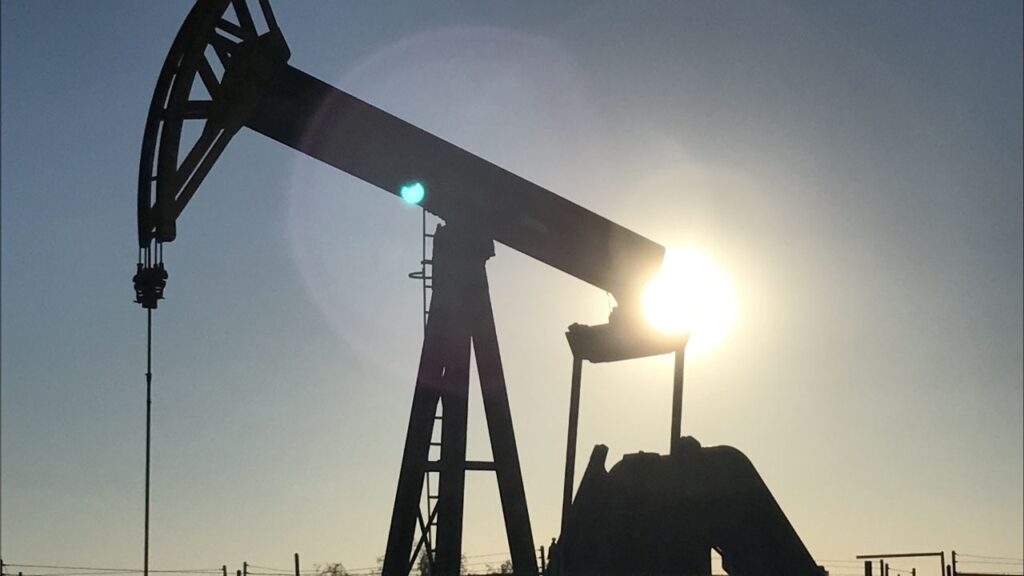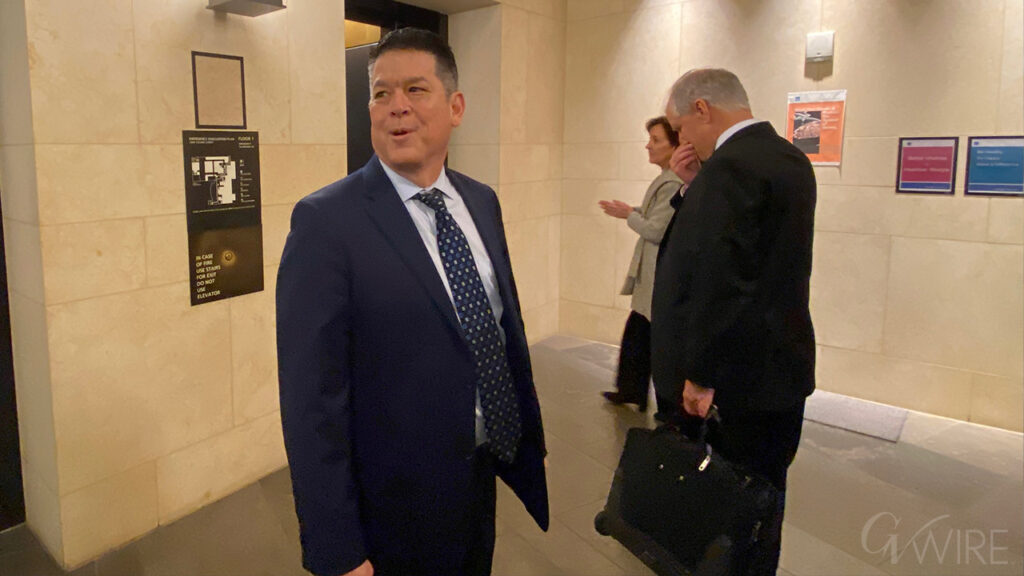Jay Famiglietti warns that the U.S. lacks a comprehensive plan to address groundwater depletion, risking future food security and potentially leading to costly and controversial solutions. (Shutterstock)

- As groundwater levels drop, U.S. food production faces severe risks without a national water strategy.
- Without immediate action, the U.S. could face costly and unpopular water pipelines to sustain agriculture.
- A fragmented approach to groundwater management may lead to dire consequences for food and water security.
Share
|
Getting your Trinity Audio player ready...
|
Opinion by Jay Famiglietti on August 5, 2024.
THE UNITED STATES HAS NO PLAN FOR THE DISRUPTIONS THAT WILL BEFALL OUR FOOD SYSTEMS AS CRITICAL WATER SUPPLIES DWINDLE.
This essay is part of What to Eat on a Burning Planet, a series exploring bold ideas to secure our food supply. Read more about this project in a note from Eliza Barclay, Opinion’s climate editor.
Driving north through California’s Tejon Pass on Interstate 5, you spill down out of the mountains onto a breathtaking expanse of farm fields like few others in the world. Rows of almond, pistachio and citrus trees stretch as far as the eye can see, dotted by fields of grapes. Truckloads of produce zoom by, heading for markets around the country.
The Central Valley of California supplies a quarter of the food on the nation’s dinner tables. But beneath this image of plenty and abundance, a crisis is brewing — an invisible one, under our feet — and it is not limited to California.
Coast to coast, our food producing regions, especially those stretching from the southern Great Plains across the sunny, dry Southwest, rely heavily and sometimes exclusively on groundwater for irrigation. And it’s disappearing — fast.
Related Story: Visalia-Based Nonprofit Swamped by Requests for Help From Valley Groundwater ...
What Happens if Groundwater Runs Out?
What happens to the nation’s food production if the groundwater runs out altogether? Unless we act now, we could soon reach a point where water must be piped from the wetter parts of the country, such as the Great Lakes, to drier, sunnier regions where the bulk of the nation’s food is produced. No one wants unsightly pipelines snaking across the country, draining Lake Michigan to feed the citrus groves of the Central Valley. But that future is drawing closer by the day, and at some point, we may look back on this moment and wish we’d acted differently.
For over a century, America’s farmers have overpumped groundwater, and now, as the world warms and the Southwest becomes drier, the situation is only growing more dire. Rivers are slowing to a trickle, water tables are falling, land is sinking, and wells are drying up. Each year, roughly 25,000 more farmers fallow their fields, putting both food and water security in the United States at risk.
States are aware there is a problem — many are trying to sustainably manage their groundwater. But it’s not clear how successful these efforts have been. My research team has found that groundwater depletion is accelerating in the Central Valley, in spite of California’s Sustainable Groundwater Management Act. In Arizona, groundwater is only managed in less than 20 percent of the state, leaving a free-for-all in the state’s unmanaged areas.
Related Story: Kern County Farmland Values Continue Downward Slide
The US Does Not Have a Plan
The United States has no plan for the disruptions that will befall our food systems as critical water supplies dwindle, causing the price of some foods to skyrocket and bringing us closer to the time when we may have to consider pipelines to replenish or replace depleted groundwater.
Some of the world’s largest countries are already forging ahead with these kinds of projects. China’s South-to-North Water Transfer Project and India’s National River Linking Project redirect volumes of water the size of Lake Mead to dry regions from wet ones each year. The United States could do the same.
But it’s not something we should be rushing toward. Americans, particularly those living in places like the Great Lakes region, have already shown that they have little stomach for infrastructure projects that would move their local water to remote locations, even if it is to produce the food they eat every day.
It’s not just the political climate that makes tapping water resources in the East such an undesirable prospect. We’ve built systems of canals to move water around California and the Colorado River basin, but constructing a transcontinental pipeline or river diversion, at the scale required to sustain U.S. agriculture, would be staggeringly more complex, expensive and environmentally disruptive.
They would require significant landscape changes and human displacement. And because water is so heavy, it is extremely expensive to transport. Building the necessary conveyances would require decades of planning, have major environmental consequences and cost taxpayers astronomical sums — easily tens to hundreds of billions of dollars, and far more when you take the human and environmental costs into account.
Related Story: Ag Districts to Fund Water Projects in Disadvantaged West Fresno County ...
We Could Avoid This Outcome
The United States can still avoid this outcome. If we want to sustain groundwater supplies for future generations, we will need reliable estimates of what’s available in key aquifers, how its quality changes with depth and how much can be safely pumped without risk of running dry. That means we must prioritize the systematic exploration and evaluation of what’s in the ground and make a plan to end or dramatically reduce groundwater depletion.
But we won’t be able to do that without a national water policy. The current patchwork of groundwater policies across the country isn’t enough. This is a national problem that only national coordination can solve.
Last December, President Biden’s Council of Advisors on Science and Technology called for testimony on the future of groundwater resources in this country, including the implications for its disappearance and possible strategies for mitigating depletion. (I was among the experts who testified before the panel.) More recently, the council requested public input on America’s groundwater challenges. This recent groundswell of awareness affords a rare opportunity to transform the way that groundwater is measured, monitored and managed.
The United States has kicked the can down the road for decades, but that road has finally reached a dead end. It is time for this nation to act to sustain both its food and water security for centuries to come.
Otherwise, we will be faced with the unpleasant prospect of the Great Lakes partially drained of their freshwater, which will be piped across country in a wasteful, expensive and unpopular project that could have been prevented, had we only acted quickly when we still could.
Related Story: Visalia-Based Nonprofit Swamped by Requests for Help From Valley Groundwater ...
–
This article originally appeared in The New York Times.
c.2024 The New York Times Company



















